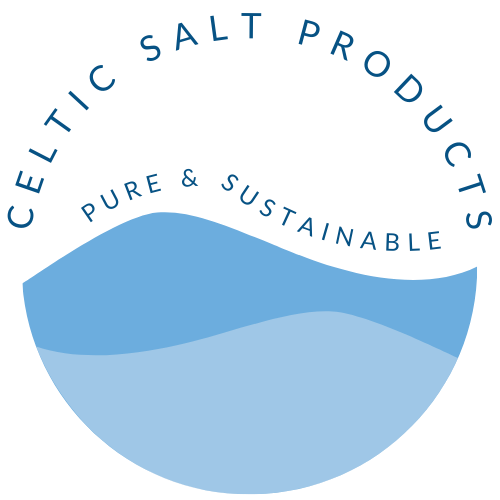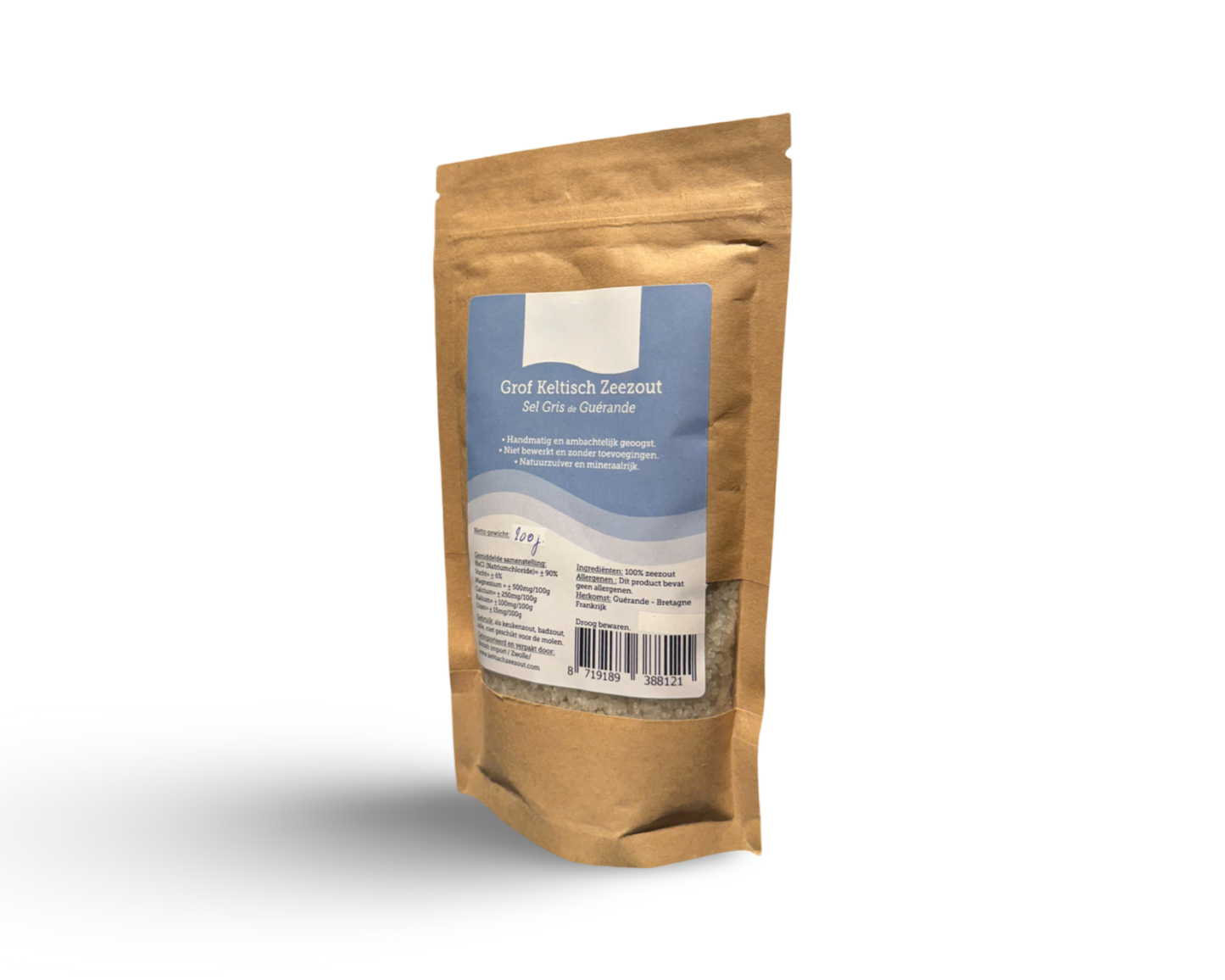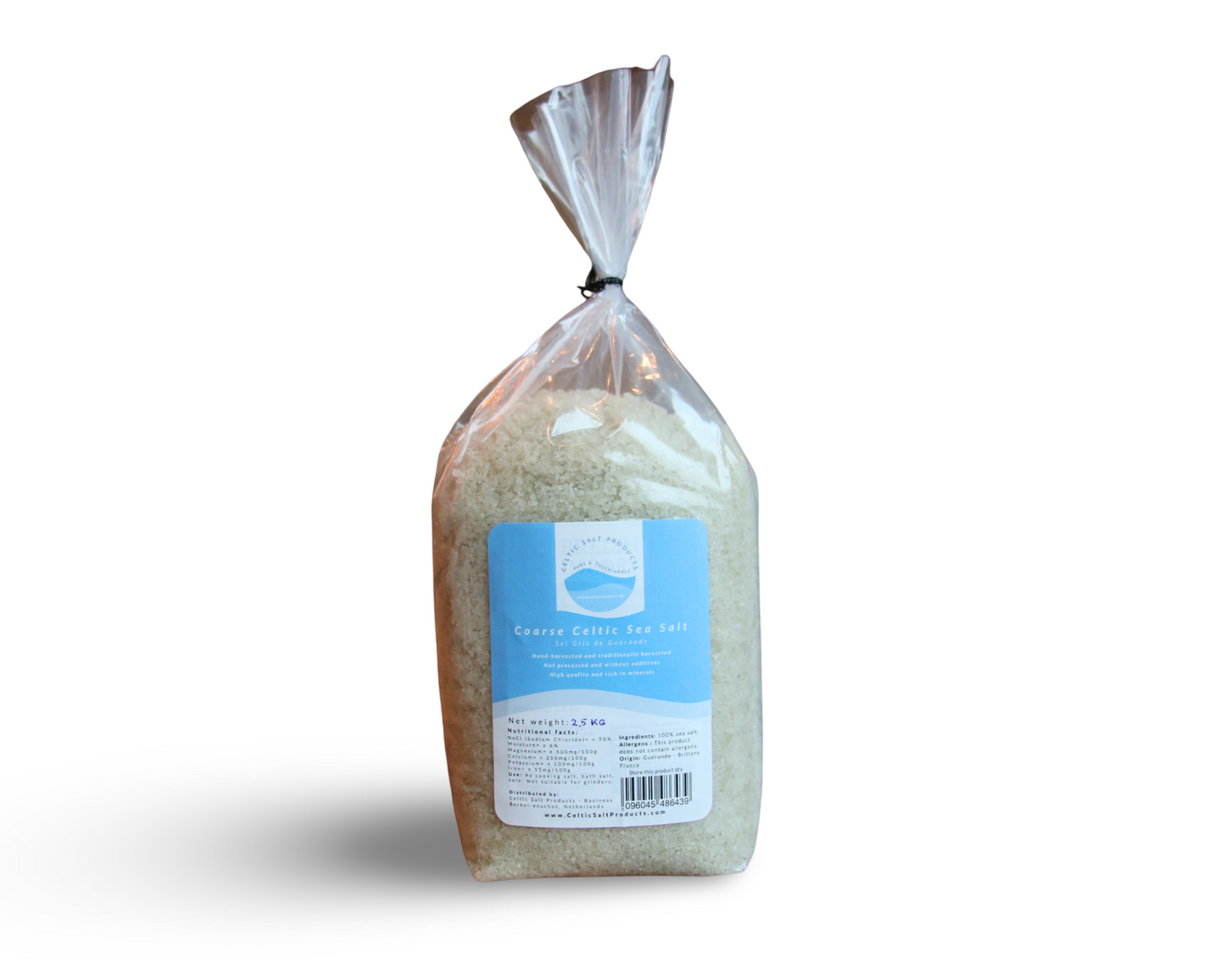Le sel de mer celtique, un sel naturel récolté dans les régions côtières de France, est célébré pour sa richesse en minéraux et ses nombreux bienfaits pour la santé. Cependant, comme pour tout composant alimentaire, il est important de considérer les effets secondaires potentiels et d'équilibrer sa consommation. Ce blog vise à éclairer les effets secondaires associés au sel de mer celtique, garantissant que les lecteurs puissent prendre des décisions éclairées sur son inclusion dans leur alimentation.
1. Teneur Élevée en Sodium
Le sel de mer celtique, comme tout sel, est principalement composé de chlorure de sodium. Une consommation élevée de sodium est liée à une augmentation de la pression artérielle et à un risque accru de maladies cardiaques et d'accidents vasculaires cérébraux. Il est crucial de consommer le sel de mer celtique avec modération, en particulier pour les personnes souffrant d'hypertension ou de problèmes cardiaques.
2. Rétention d'eau et ballonnements
L'apport excessif en sel peut amener le corps à retenir de l'eau. Cette rétention peut entraîner des ballonnements et un gonflement, en particulier dans les extrémités. Les personnes sensibles au sodium ou ayant des problèmes rénaux devraient être prudentes quant à leur consommation de sel de mer celtique.
3. Risque d'hypernatrémie
Bien que rare, la consommation de grandes quantités de sel peut entraîner une hypernatrémie, une condition caractérisée par des niveaux de sodium dangereusement élevés dans le blood. Les symptômes incluent confusion, convulsions et coma, nécessitant une attention médicale immédiate.
4. Impact sur la santé des reins
Les reins jouent un rôle clé dans la régulation du sodium dans le corps. Une consommation excessive de sel, y compris le sel de mer celtique, peut exercer une pression supplémentaire sur ces organes, exacerbant potentiellement les problèmes liés aux reins problèmes de santé.
5. Potentiel pour Métal lourd Contamination
Pendant Sel de mer celtique est souvent loué pour sa trace minerals, il existe un risque de contamination par des métaux lourds tels que le plomb et le mercure. Ces contaminants peuvent avoir divers effets néfastes health effects, en particulier avec une exposition à long terme.
6. Interaction avec les Médicaments
Le sel peut interagir avec certains médicaments, y compris les diurétiques, le lithium et les médicaments pour l'hypertension. blood pressureIl est important de consulter un professionnel de la santé concernant la consommation sûre de sel de mer celtique si vous prenez des médicaments.
7. Déséquilibre de Electrolytes
Une déséquilibre dans l'apport en sodium peut perturber l'équilibre d'autres électrolytes essentiels dans le corps, tels que potassium et magnésium. Ce déséquilibre peut entraîner des crampes musculaires, des étourdissements et d'autres problèmes de santé.
Conclusion
Sel de mer celtique peut être un ajout savoureux et nutritif à votre alimentation, offrant plus de minéraux que le sel de table ordinaire. Cependant, il est important de le consommer avec modération pour éviter d'éventuels effets secondaires. Prenez toujours en compte vos conditions de santé individuelles et vos besoins alimentaires, et consultez un professionnel de la santé si vous avez des préoccupations concernant votre consommation de sel.
comprenant ces effets secondaires, les consommateurs peuvent profiter des bienfaits du sel de mer celtique tout en minimisant les risques potentiels, ce qui conduit à une alimentation plus saine et plus équilibrée.
Cliquez ici pour visiter notre boutique en ligne











